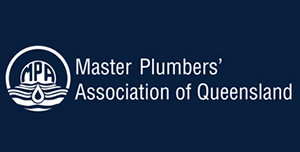Hot Water Systems
Hot water systems provide for comfort and hygiene to all of us. Its important that they are installed correctly for your safety and the community. When not installed correctly or if settings are tampered with and the water is too hot (50C for domestic or 45C in healthcare facilities, schools, childcare, aged care ect) people may be scalded, if the water is stored below 60C they can be a breeding ground for Legionella bacteria which can cause legionnaires’ disease. If TPR valves aren’t working, hot water systems can split, crack or in extreme cases explode as the water heat and has no where to release the pressure.
6 monthly maintenance can be done by the occupants, its important to operate the TPR valve every 6 months to ensure its not blocked.
Hot water systems that store water also have sacrificial anodes which manufactures recommend are changed every 5 years (under normal conditions). Changing the anode can significantly extend the operating life of the hot water system.
Tempering valves and thermostatic mixing valves should be checked and tested every 12 months and have their “critical components” replaced every 5 years.
A new hot water system can be an important investment and its crucial to make the right decision about which system best suits your home or commercial facility. There is a variety of options and each has its pros and cons.
Electric storage, very common in the weipa area, generally considered to be a cheaper option initially, but running cost may be slightly higher than some other systems. They are a great low maintenance “set and forget” option.
Solar Hot water, A good option for those who are conscious of power consumption and their carbon footprint. Purchase and installation does cost more than most other systems due to a) the cost of the actual unit, b) they are bulky and need to be freighted to weipa, c) often times a forklift tele-handler or crane is required to safely get the new unit on the roof. Because they are one of the more expensive systems to install/replace we stress the importance of having them maintained regularly to get the most life possible out of your system. Manufacturers recommend 5 yearly servicing under normal conditions and suggest more frequent services on systems in “hard water areas”
Instant gas hot water, are great a great option and also low energy consumption as they only turn on when the tap is on (no pilot light or keeping stored water hot). They also have the advantage of “unlimited” hot water as they heat water on demand as its being used. They have restrictions on where they can be installed as they are a gas appliance.
Heat pumps, These systems are expensive to purchase but tout energy efficiency savings in the long term. They work similar to an air conditioner, transferring the heat into the water storage and expelling cold air. They are not a very common system due to the initial costs.
Gas storage, Often run with a pilot light and consume gas constantly. They are more suitable for use in areas with access to natural gas, which is cheaper than LPG.


